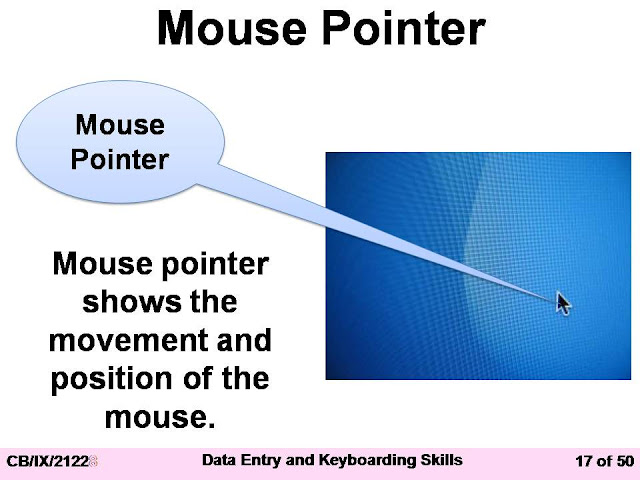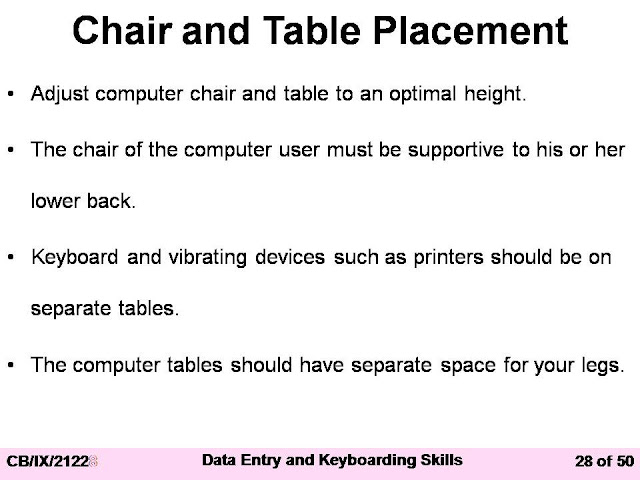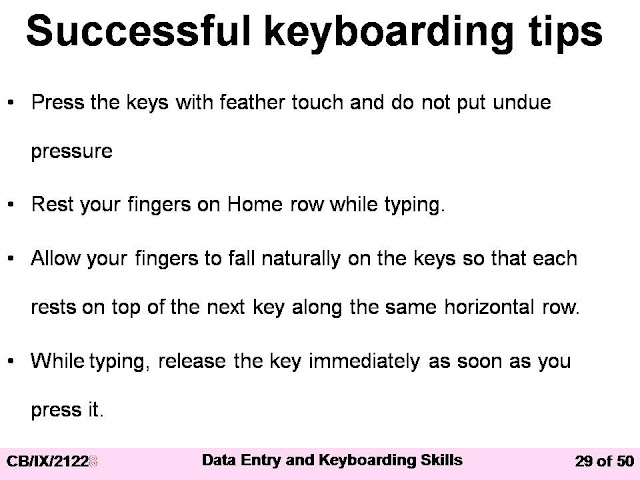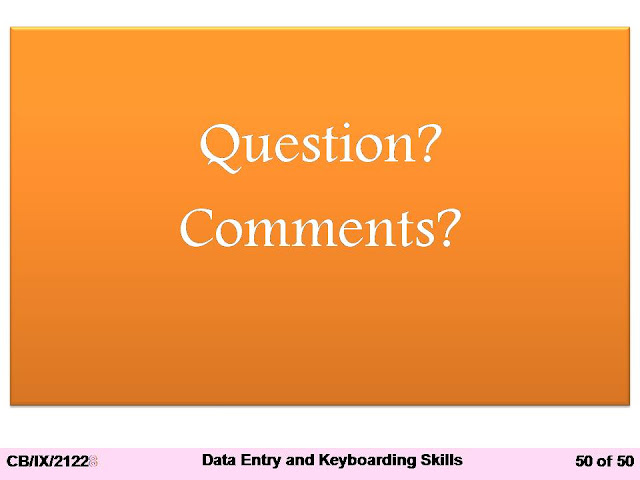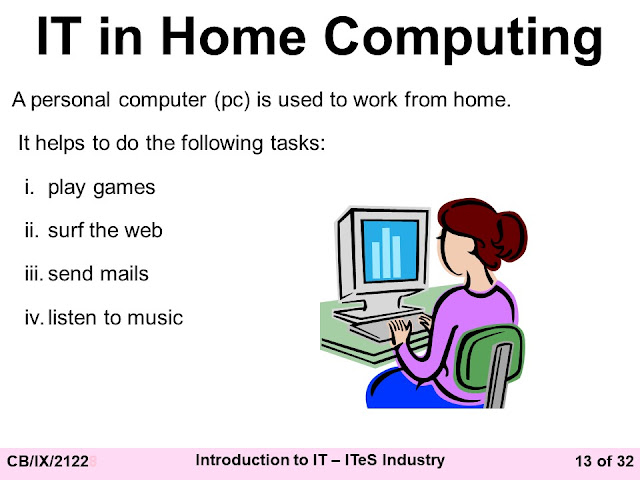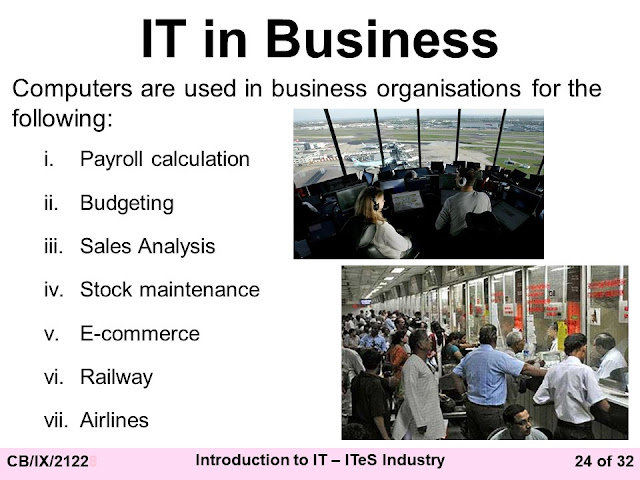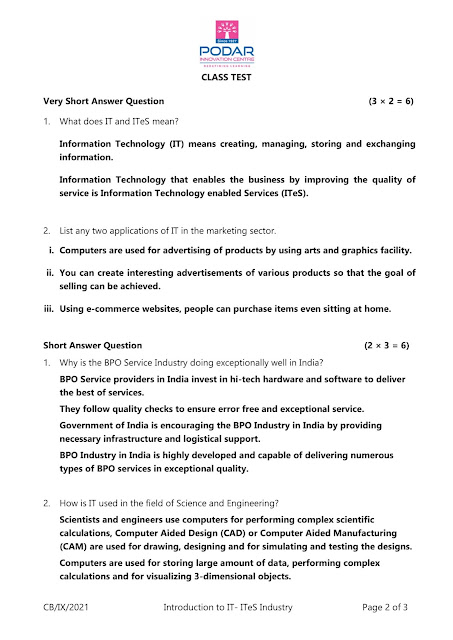WORKSHEET
|
Subject: IT (402) |
Topic: Introduction to IT – ITeS Industry |
Grade: IX |
Q.I.
Write down the names
of machines that make use of ICT to perform the following tasks
in the medical field.
|
Sr. No |
Task |
Name of machine |
|
1 |
To obtain 3D images
of different body
parts |
|
|
2 |
To obtain digital
impressions of organs
by using magnetic fields and radio
waves |
|
|
3 |
To monitor the
heartbeat |
|
|
4 |
To display the physiology of heart and
movements inside the heart |
|
|
5 |
To record the activities of the brain |
|
Q.II.
Answer the following questions
1. Explain the terms IT and ITeS.
2. List any five sites of Indian government that provides IT enabled
services to the people.
3. What do you mean by BPO services? List any
five different BPO services?
4.
List the different uses of IT in banking systems.
5. Explain the use of IT in the marketing sector.
6. List the different parameters based on which organizations within
the IT-BPM industry
are categorized.
|
Subject: IT (402) |
Topic: Data
Entry and Keyboarding Skills |
Grade: IX |
|
Multiple Choice
Question |
|
|
|
1. It is a toggle key which when activated causes all alphabetic characters to be uppercase. |
||
|
(a) alt
key |
(b) caps lock key |
|
|
(c) shift key |
(d) arrow
key |
|
|
2. The
colour that denotes wrong inputs within the acceptable timeframe in the
results dialog window
of rapid typing
tutor. |
||
|
(a) green |
(b) yellow |
|
|
(c) red |
(d) orange |
|
|
3. The lesson
control panel can be used
for . |
||
|
(a) background |
(b) plain |
|
|
(c) animation |
(d) enable
or disable sounds |
|
|
4. The colour
in the results dialog window of rapid typing tutor denotes right inputs. |
||
|
(a) orange |
(b) red |
|
|
(c) yellow |
(d) green |
|
|
5. This key
is used to enter commands or to move
the cursor to the beginning of the next
line. |
||
|
(a) enter key |
(b) return Key |
|
|
(c) both (a) and
(b) |
(d) none
of these |
|
|
Answer the following questions |
||
|
1. Explain
the Rapid Typing
Tutor software. |
||
|
2. What is the difference between a backspace key and delete
key? |
||
|
3. What is typing
ergonomics? Explain its importance. |
|
4. Explain about the computer mouse
and its uses. |
|
5. List any 5 successful keyboarding tips. |
Introduction to IT –ITeS Industry Unit-1
Part- B
A. Give an example of the use of IT in the following areas. Avoid
already discussed examples.
Teacher Practice Example
Classroom
content transaction: Presentation of the topic taught, Videos
from Youtube,
Assessment of students: Assignments sent at home through
internet to solve,
online conduct of exam, Sending
marks and messages to parents
Library management: Easy & speedy access to
information, Improves the quality
of library service, Increases in the knowledge & experience
Student
record management : Result Analysis
with previous marks,
complete information of the student
B. Short answer questions (50 words)
1. What do you understand by the term IT and ITeS?
Ans: Information Technology (IT) means
creating, managing, storing and exchanging information using all
types of technology to deal with
information.
ITeS: Information Technology that enables the business by improving the quality of service is Information Technology enabled Services (ITeS).
2. What are the pros and cons of using ICT? Ans: Pros of Using ICT are:
1. Easy and quick communication
2.
Anywhere anytime easy access to information
3.
Improved housing and lifestyle
4.
Increased the productivity and efficiency of every industry in the world.
5.
Convenience in travelling and education
6.
Encourages innovation and creativity
7.
Creation of new jobs
-ICT has created new and interesting jobs.
Cons of using
technology are:
1.
Privacy : Your information on phone or emails
can be hacked,
2.
Cybercrime: Crimes like cyber bullying, phishing, identity theft,
cyberstalking etc.
3.
Reliability of Information – Any information on internet is not reliable.
4. Computer viruses, worms, Trojans, malware,
spam can cause chaos and disrupt our daily lives
3. What precautions are required to ensure that ICT use is safe? Precautions required
to use safe ICT are:
1.
Install protective software :
Install Antivirus which can help to reduce any damage to the data
present in the computer and keep it updated.
2.
Choose strong passwords:
Strong passwords use a combination of letters, numbers,
and special characters.
3.
Back up on a regular
basis.
Routine backups on Hard disks or online drives can protect you from the unexpected loss of
data.
4.
Control access to your machine.
Always logout from your id and donot leave your machine unattended with your id logged in.
5.
Use email and the internet safely.
Ignore unwanted emails.
Be cautious of attachments, links, and forms in emails that come
from people you don't know.
6.
Protect sensitive data.
Protect sensitive files using the encryption tools built into your operating system.
7.
Make Online Purchases From Secure
Sites
8.
Be Careful
What You Post: Don't put anything online
that may hurt someone.
9.
Be Careful Who You Meet Online: People you meet online are not always who
they claim to be.
10.
Be Careful What You Download
4. What are
the four main sub-sectors in the
IT-BPM industry?
Ans: Four main sub sectors are:
1. IT Services (ITS) sub-sector involves a range of engagement types that include consulting, systems integration, IT outsourcing/managed services/hosting services, training
and support/maintenance.
2.
Business Process Management (BPM) sub-sector deals with the management of one or more business processes by an external organization.
3. Software Products The IT Industry
providing services in the
area of software products
– through any of the product
lifecycles – is referred to as the Software Products (SPD) sub- sector.
4.
Engineering Research
and Development (ERD) services are thosethat increase or manage
processes which are related to the creation
of a product or service.
5.
Give examples of use of IT in everyday
life.
Ans: The use of IT in our daily life includes listening to music,
watching movies, playing games, doing office work, chatting and sending messages,
managing daily planner,
reading books, paying
utility bills, booking
ticket to travel, bank operations, etc.
IT in daily life is also used in washing
machines, microwave oven and many other products
using which have embedded software.
We can store all the information about our important work, appointments schedules
and list of contacts in a computer.
6.
How is IT used in libraries?
Ans: Nowadays many libraries are computerised. Each book has a barcode
associated with it. This
makes it easier for the library to a keep track of books and the availability
of a specific book. Computer software
is used to issue and return the book. Each book in the library has a magnetic
strip attached to it that is
deactivated before the book can be borrowed.
7.
What
are the various processes of education where IT is used? Ans:
The various processes of education are:
(a)
ICT in the
classroom : It is used through e-learning classrooms; smart- board presentations; videos; magazines, letters
and documents; educational games; gathering educational information on the Internet.
(b)
Education —
anywhere anytime: Students can access information of their subject at anytime using internet with the help of
variety of websites and mobile apps. For e.g
www.epathshala.nic.in or mobile app.
A teacher
or a trainer can be contacted
via Internet to use WBT (Web-based Training).
(c) Teaching aids and media :ICT is used as a
teaching aid in schools to
• use
pictures, animations and audio-visuals to explain subjects that are difficult
to explain.
•
make the lessons
interesting using presentations.
(d)
Learning
Management System (LMS) :A Learning Management System (LMS)
is being used by many countries to
manage school systems. It will help students to learn better and will enable
the parents to monitor the progress of their children.
8.
Which software are used in digital
communication?
Ans.: We use computers for email, chatting, FTP, telnet and video
conferencing which means Digital communication. The software used are Skype,
Whatsapp, Gmail, Facebook,
Instagram etc.
9.
For what purpose is IT used in business?
Ans.: a) Computers are used in business organisations for payroll calculation, budgeting, sales analysis, financial forecasting, managing
and maintaining stocks.
b)
A lot of business transactions happen through Internet
called e-commerce.
c)
IT helps in marketing, customer
visit, product browsing, tax and shopping, receipt
and process order,
Online banking, ticket
booking etc.
10.
Which are the prominent areas where IT is
used in science and engineering? Ans: Scientists and engineers use
computers for
· performing complex scientific calculations. CAD or CAM applications are used for
drawing, designing and for simulating and testing the designs.
· for storing
large amount of data, performing complex calculations.
· Complex scientific applications like rocket
launching, space exploration, etc.
11. List the various uses of IT in a banking system. Ans:
Every activity of a bank is now online, like:
· The customer’s data and transactions are recorded by computers.
· Recurring deposits, Fixed deposits, money
transfer from one account to another (NEFT, RTGS), online transactions are done using
Internet.
·
Capital market transactions, financial
analysis and related
services are available in online platforms.
· ATM is used for cash deposits
and withdrawal.
12.
Which
are the different areas of healthcare where IT is used? And how? Ans:
ICT is used in the health
sector in numerous
ways.
Hospital Management System
is used to maintain and manage patients’
records. The computerized machines are used for ECG, EEG, Ultrasound and CT Scan.
The variety of measuring instruments and surgical equipment
are used to monitor patients’ conditions during
complex surgery.
Expert system is used for diagnosis.
(a)
Use of ICT in diagnosis and treatment of critical diseases. Some of the machines used are:
(i)
Computerised
Axial Tomography Machine (CAT): Using this machine (3D)
images of different parts of
the body can be made.
(ii)
MRI (Magnetic
Resonance Imaging Machine): MRI machines are used to give the digital
impression of internal
organs of the body by using strong magnetic fields
and radio waves.
(iii)
Electrocardiogram (ECG) Machine:
The ECG machine
is used to monitor the heartbeat. It records the electrical impulses
and shows it in the
form of a graph.
(iv)
Cardiac Screening Machine: This machine
displays the physiology of the heart
and it displays the movements inside
the heart.
(v)
EEG (Electro ‑ encephalography) Machine: This machine is used to record the activities of the brain.
The small electrical probes attached to the head receive the electrical impulses
of the brain and display them on
a computer screen.
(vi)
Blood Sugar
Testing Machine: This device analyses a sample of blood and determines the blood glucose
level.
(vii)
Blood Pressure
Measuring Machine: This device
is worn as a wrist band to measure the blood pressure of a person.
13.
List any 5 websites of
the
Indian government which
provide IT enabled services to the people.
Ans: Indian government websites are:
www.India.gov.in
www.ssc.nic.in www.incometaxindia.gov.in www.upsc.gov.in www.indianrailways.gov.in www.rbi.org.in www.portindia.gov.in









































































